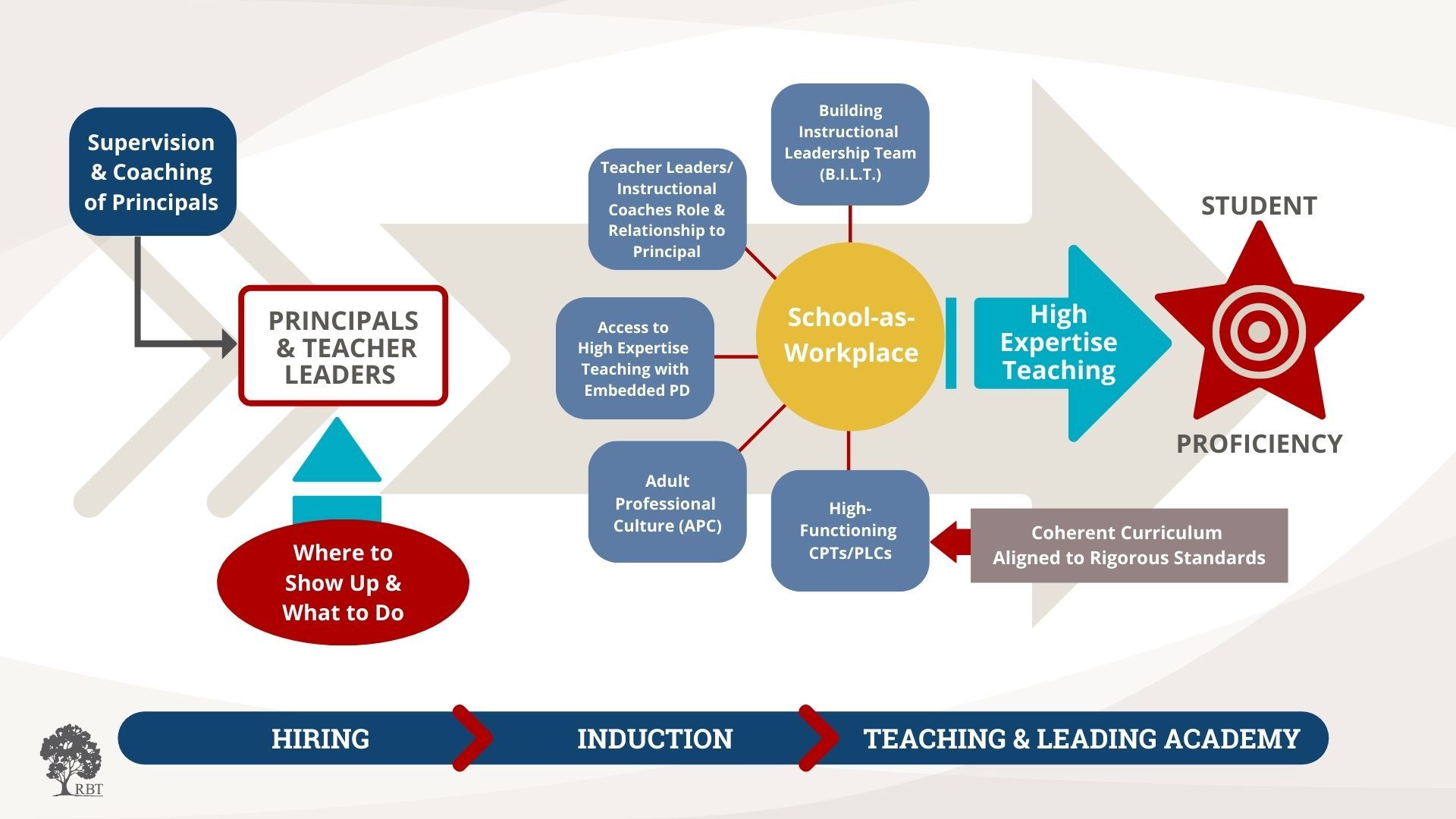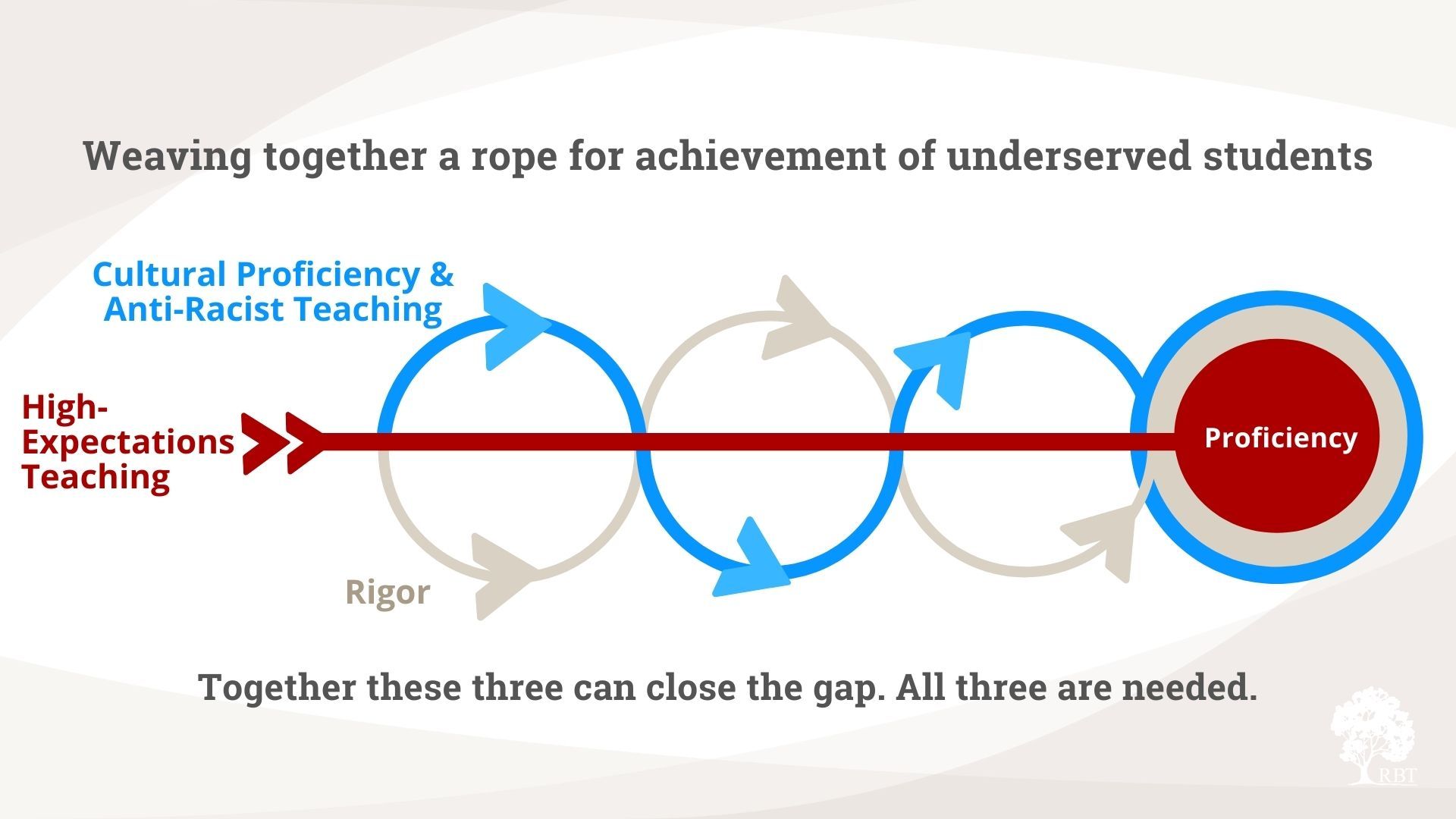The foundation for sustainable improvement is getting clear common images of what good teaching and learning looks and sounds like regardless of grade level or subject – the shared knowledge and skill of high-expertise pedagogy. |
Jon SaphierFounder and CEO of RBT |
PD Courses Alone Won't Do It
Sustainable improvement of teaching and learning is the key to increasing student achievement – emphasis on sustainable.
PD courses alone won’t do it, no matter how good they are. So we work with client districts to embed the focus on powerful teaching skills into the district processes that are a continuing force for influencing teaching expertise – processes like hiring, supervision and evaluation, and internal development of skillful leadership, especially for growing a culture of continuous improvement.
Levers of Influence on Teaching Expertise
If we redesign each of these processes to focus on improving high-expertise teaching, then we will accelerate student achievement.
RBT acts as a critical friend and partner with district leaders, school leaders, and teachers to coordinate a long-term change process that produces results: changes in culture, leadership, and classroom practice that have a direct and lasting impact on student achievement and motivation. Our staff and consultants work in concert with the team throughout the process.


Systemic Impact
When a district implements multiple RBT programs it results in a system-wide culture of continuous improvement of teaching and learning.
The Key Steps
Within each project, these are the key steps that RBT engages the client in to identify the best path toward sustainable improvement:
Plan for Sustainable Improvement
- Assessing strengths and needs
- Determining the highest-leverage entry point
- Establishing shared goals and expectations
- Engaging stakeholders
- Aligning RBT’s work with other initiatives and other providers
- Maintaining a focus on improving classroom teaching and learning
Implement Professional Development, Coaching, and Consulting
- Tailoring professional learning experiences to participants’ needs
- Using ongoing formative assessment to adjust programs
- Blending face-to-face professional development with technology-based delivery
- Combining workshops with classroom and leadership coaching
- Customizing consulting
Monitor Implementation
- Debriefing on a regular basis with the team
- Using formative data to make mid-course corrections
- Building the capacity of leaders to manage complex change initiatives
- Identifying and addressing needs as they arise
- Anticipating and solving problems
Sustain Improvement
- Using implementation and impact data to plan for the next high-leverage intervention
- Assisting in creating structures to institutionalize changes, e.g., instructional coaches, Data Coaches, Data Teams, growth-oriented teacher evaluation systems, and Teaching, Learning, and Leading Academies
The Through Line of High-Expectations with Anti-Racism and Rigor


Bring systemic improvement to your district
Contact us to discuss how we can help bring systemic improvement to your district.